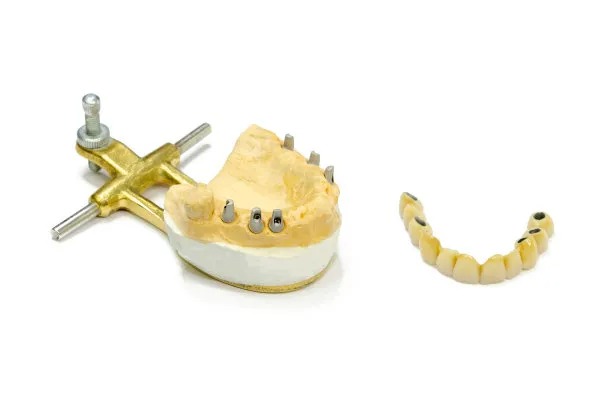Summary: Dental implant surgery is a significant decision in restoring oral health and aesthetics. Before proceeding, patients need to be aware of essential considerations and precautions to ensure optimal results. This article delves into four main aspects: evaluating candidacy for the procedure, choosing the right dental professional, understanding the procedures risks and benefits, and preparing for the aftercare process. Each of these areas plays a crucial role in determining the surgerys success and the patients overall satisfaction. By understanding these facets, potential patients can make informed decisions about their dental implant journey, leading to improved outcomes.
1. Evaluating Candidacy for Dental Implants

Before undergoing dental implant surgery, its vital to assess whether you are a suitable candidate. Factors like age, overall health, and dental hygiene play a significant role in eligibility. Generally, individuals who are at least 18 years old are considered for implants, as their jawbone has fully developed.
Moreover, medical conditions such as diabetes, heart disease, or autoimmune disorders may affect candidacy. Its essential to discuss your medical history with your dentist or oral surgeon to ensure that these conditions are well-managed before the procedure.
Lastly, the health of the jawbone is crucial. Patients with insufficient bone density may need bone grafting procedures to support the implant. Therefore, a thorough evaluation through imaging studies is necessary for candidacy assessment.
2. Choosing the Right Dental Professional
Selecting a qualified and experienced dental professional is paramount for successful dental implant surgery. Oral surgeons, periodontists, and general dentists can all perform this procedure, but their experience levels and techniques may vary significantly.
When considering a dental professional, look for credentials, such as board certification and specialized training in implant dentistry. Reviews from previous patients can provide meaningful insights into their skill and patient care. Additionally, scheduling a consultation can help gauge comfort levels and communication styles, which are essential during the surgical process.
Furthermore, make sure the dental facility is equipped with modern technology and standards that can ensure safety and comfort during the procedure. A well-maintained environment reflects the professional’s commitment to providing the best care.
3. Understanding Risks and Benefits of Implants
Knowledge of both the risks and benefits associated with dental implants is crucial for informed decision-making. On the benefit side, dental implants provide enhanced aesthetics and functionality, allowing patients to regain their confidence when smiling and speaking.
However, like any surgical procedure, implants come with risks. These may include infection at the implant site, nerve damage, or implant failure due to improper placement. It’s essential to weigh these risks against the benefits carefully.
Engaging in discussions with your oral surgeon can help you understand these elements thoroughly. Make sure to ask questions about the likelihood of complications and the best practices to mitigate them, which can lead to successful outcomes.
4. Preparing for Aftercare and Recovery
Post-surgery care is just as crucial as preparation before the dental implant procedure. Following the surgery, patients should have a recovery plan that includes proper pain management, diet modifications, and oral hygiene practices tailored to the unique needs of dental implants.
Consult with your dentist about recommended medications to manage any discomfort and instructions on caring for the implant site. Soft foods are typically recommended during the initial recovery phase to promote healing.
Additionally, schedule follow-up appointments to monitor healing and ensure that the implants are integrating successfully into the jawbone. Consistent dental check-ups will not only help maintain the health of your implants but will also support your overall oral health.
Summary:
In conclusion, preparing for dental implant surgery involves careful consideration of several factors. Evaluating candidacy, selecting the right professional, understanding associated risks and benefits, and planning for aftercare can significantly influence the outcome of the procedure. By approaching dental implants with knowledge and preparation, patients can achieve optimal results and restore their smile with confidence.
This article is compiled by Vickong Dental and the content is for reference only.
Vickong Dental
Vickong Dental is a large medical group established in Hong Kong in 2008 by professors from well-known medical universities in Guangdong and Hong Kong, as well as medical doctors from key national '985' universities (including Master's supervisors and senior professors). The chain of branches brings together expert dentists with PhDs and Master's degrees from Hong Kong and Mainland China, committed to providing high-quality dental treatment.
"Vickong Dental Practices the University Motto of 'Healing and Serving Society,' with a Stable Operation for Sixteen Years. It Has Been honored with Hong Kong Enterprise Leaders's Choice,' and is a Global Trusted Implant Center for the Nobel Implant System. Recommended by Hong Kong Metro Broadcast and Guangdong Television, it Serves Customers from Over Thirty Countries and Regions, Gaining the Trust and Favor of Citizens from the Guangdong-Hong Kong-Macau Greater Bay Area and Surrounding Cities.

Thousands of customers' unanimous praise
The most recognized and highly recommended dental service by customers in the Guangdong-Hong Kong-Macau Greater Bay Area
We Ensure You Receive Detailed Care and Attention Here
Hong Kong standards, Shenzhen prices, Your Trusted English-speaking dentists

Vickong Dental Medical-Grade Instrument Disinfection Process
Vickong Dental Medical-Grade Instrument Disinfection Process

Vickong Dental Chain: A Warm and Comfortable Environment for Treatment






Appointment Hours

Q&A
Why choose Vickong Dental?
Vickong Dental practices the university motto 「Medicine to Benefit Society」, with each branch bringing together highly qualified dentists with doctoral and master’s degrees from Hong Kong and the Mainland, and has maintained seventeen years of steady operation。Recipient of 「2024 Hong Kong Enterprise Leaders Brand」, 「2025 Hong Kong Enterprise Leaders Brand」, a Nobel Biocare Global Trusted Implant Center, and a brand recommended by Metro Radio Hong Kong and Guangdong TV。
To date, we have served customers from more than thirty countries and regions,earning exceptionally high word-of-mouth recognition and trusted recommendations from residents across the Guangdong-Hong Kong-Macao Greater Bay Area and surrounding cities
We have eight major branches in Zhuhai、Shenzhen,and a consultation and service assurance center in Hong Kong,so you can book a free consultation at any time for any questions,which is very reassuring.
If I do not accept the quotation after the CT scan, will I be charged??
No! As long as the actual treatment has not started, you will not be charged any fees.
Will there be any additional charges during the treatment process?
No, there won’t be any additional charges. Before treatment begins, we will clearly explain the treatment plan and its corresponding fees. Only after the patient agrees and signs the consent form will we proceed with the dental service.
Can I pay in Hong Kong dollars?
Yes. Vickong Dental accepts payment in Hong Kong dollars. The amount will be converted based on the exchange rate of the day, and the applicable rate will be clearly communicated to you in advance.
Can I reschedule my appointment at any time?
Yes. Please contact us via **WeChat** or **WhatsApp** as early as possible, providing your original appointment time and details, along with your preferred new date and time slot for rescheduling.













